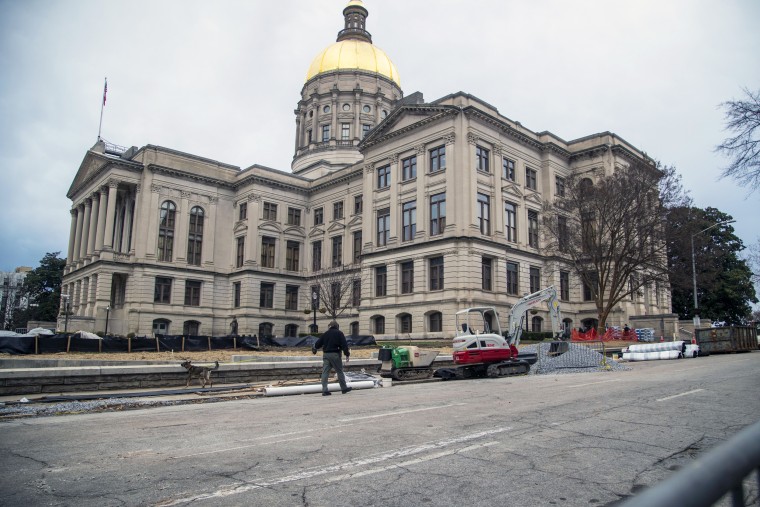By now, the basics of the GOP’s fake-electors scheme are probably familiar. We learned months ago that Republicans in several states created forged election materials after Donald Trump’s 2020 defeat, pretending to be “duly elected and qualified electors.” The Republicans then sent the documents to, among others, the U.S. Senate and the U.S. Archivist, as if the fake materials were legitimate. They were not.
As scrutiny of the controversy intensified, we also learned that members of the former president’s team were directly involved in trying to execute this scheme.
The revelations are far from over. The Washington Post reported this week:
A staffer for Donald Trump’s presidential campaign instructed Republicans planning to cast electoral college votes for Trump in Georgia despite Joe Biden’s victory to operate in “complete secrecy,” an email obtained by The Washington Post shows.
The same Post report added that the Dec. 13, 2020, email from Robert Sinners, the campaign’s election operations director for Georgia, went on to instruct the electors to tell security guards at the building that they had an appointment with one of two state senators. “Please, at no point should you mention anything to do with Presidential Electors or speak to the media,” Sinners continued in bold.
At face value, this may not seem too surprising. After all, the Republicans involved in this gambit appeared to be involved in an inherently fraudulent scheme. Of course they’d stress the need for “complete secrecy.”
It’s also notable that some of the Georgia Republicans involved in the effort failed to follow the instructions from the Trump campaign operative: As Ali Velshi explained on the show last night, Georgia’s fake electors invited a local news crew into a room to film them as they signed documents declaring themselves the “duly elected and qualified electors,” reality be damned.
That said, the fact that the email calling for “complete secrecy” was even sent in the first place could be important: If those who organized and participated in the scheme were conscious of the fact that their activities were legally dubious, it might increase their legal exposure.
But let’s also not brush past the fact that federal investigators appear to have taken a keen interest in this whole affair. Indeed, the aforementioned Washington Post report added that the Justice Department “has sent subpoenas and sought interviews with some of the 15 people around the country who were slated to be Trump electors but were replaced on the day of the electoral college vote.”
Remember, the fake electors, their organizers, and their scheme are facing investigations from the National Archives, state attorneys general, and the House select committee investigating the Jan. 6 attack on the Capitol.
On top of those probes, Deputy Attorney General Lisa Monaco confirmed that the Justice Department is “looking at” the matter, as part of an “ongoing” investigation. According to a New York Times report from two weeks ago, federal investigators have “stepped up” their criminal probe of the fake electors' gambit.
Watch this space.

